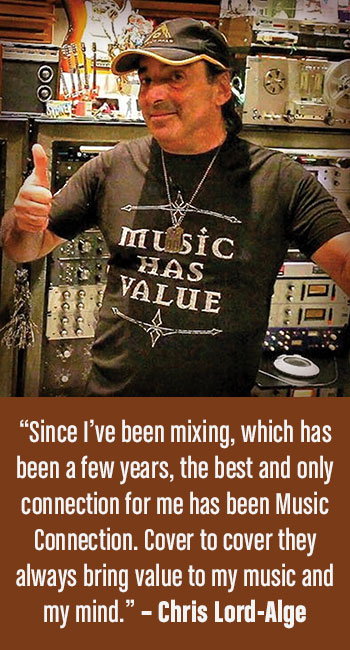Pursuing a career in the music industry can not only be physically demanding but can also lead to punishing periods of rejection that have to be dealt with. It’s something which successful film/TV/media composer Adonis Aletras knows something about and he shares some hard-won advice in the following article…
Accept the fact that you WILL hear “no” instead of “yes” most of the time...possibly for a long time. It’s the way our industry works, end of story. The sooner you realize that if it were super easy, then everyone would be successful, the better. When rejection does happen, take a deep breath and cope with it head on: remember how far you have come instead of doubting how far you will go. Think of the battles you actually have won and the fears you have overcome to get to where you are now. If there are vantage points and vistas where you can pause and stare back at your achievements (however insignificant or significant those achievements may seem to you) then you’re doing okay!
Separate your self-worth from your music. Yes, our music means everything to us, but at the end of the day it either works for a project or it doesn’t. Someone else might be hired or signed. Your value as a human being doesn't decrease on someone's rejection of your music. If you insist on taking rejection personally, very soon it will become depressing. Keep on writing, pitching and forgetting that you pitched. Then repeat the whole process! You will retain your sanity and grow your catalog at the same time. Your career depends on your mental health so don’t allow the inevitable setbacks to jeopardize either.
Demand honest opinions instead of constant applause. Open yourself to and welcome criticism. It’s one of the best ways to improve your craft. There’s no such thing as total failure, only lessons learned the hard way. Try to figure out why or ask, if possible, why you were rejected. Listen hard, learn, and hopefully you will not repeat the same mistake(s). Attempt to learn from those who have become successful and let them inspire you. Everyone has a different story to tell but many traits of successful people are quite common: at some point they have failed as well, many times. Successful people embrace failure as much as their success, and they learn from it and move on.
Prepare yourself for the long haul. The protracted path to success is littered with the corpses of those who gave up half-way through or even earlier than that. It’s true what they say that the way to climb Everest, is only one step at a time. Preparing doesn’t just mean mentally and psychologically. It means financially as well. There will be dry spells with little or no income coming in because when you are constantly rejected, it almost certainly means that you are broke too. Disappointment and financial hardship are the main reasons why most people give up. Even when you are successful no one can ever guarantee that you will be hired immediately after the current gig. Plan ahead and have emergency funds available to help you through the challenging times. Register your music with BMI or ASCAP because in the long run you could potentially be earning more from residuals than actual gigs.
Stop feeling entitled. Entitled to a successful career, entitled to “making it” or entitled to achieving similar accomplishments as your peers. When rejection and failure unavoidably happen, the sense of entitlement will only make things worse for you. Nobody cares if you went to college to study music and you earned a degree. That was YOUR choice. Equally nobody cares if you are a starving artist because yet again, this is your career choice. If you really love what you do then do it without any preconceived notions of grandeur. The world does not owe you a living so try creating something unique that the world will embrace and possibly purchase. Only then you will be making a living doing what you love.
Evaluate and re-examine what success means to you. In other words set up realistic goals. Your career as a composer for media or as songwriter is nothing but a long and difficult journey where there are zero promises or guarantees. You probably won’t be hired to score the next Star Wars movie or your song will not top Billboard despite everyone telling you that it’s a hit. There is only so much room at the very top but there’s a multitude of other options to pursue in our industry and succeed. The bottom line is a choice of either working towards dream or chasing an unrealistic dream. Dreams are valid of course but being pragmatic about them can save you years of meandering.
Share your success with everyone else by spreading the knowledge you gained during your journey. Your influence is not determined based on your monetary success, but your ability to help others succeed. If you do get a taste of success and you pass on the wisdom to others who may be less fortunate than you, then the industry and your peers will appreciate and respect you even more because everyone remembers fondly someone who is generous. I’m certain there was someone, somewhere along the line, who helped you. That one sentence or small favor you do for someone might not mean that much to you but they might just change the trajectory of another’s career towards the better. Gratitude should be your attitude.
ADONIS ALETRAS is a working film/TV/media composer with 100’s of credits on US network/cable Television, games and apps. His music can be heard in Emmy award winning Television shows and he is a voting member of the Television Academy (Emmys) and the Recording Academy (Grammys). He is the author of the best-selling book So, you want to become a media composer available on Amazon/Kindle worldwide.















